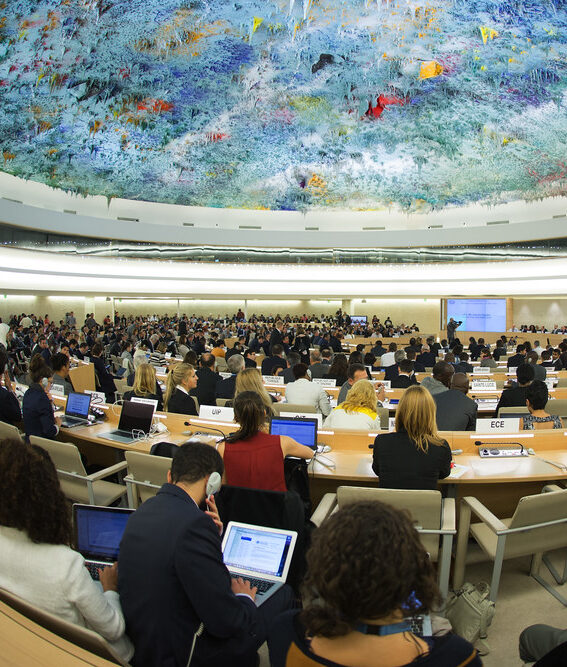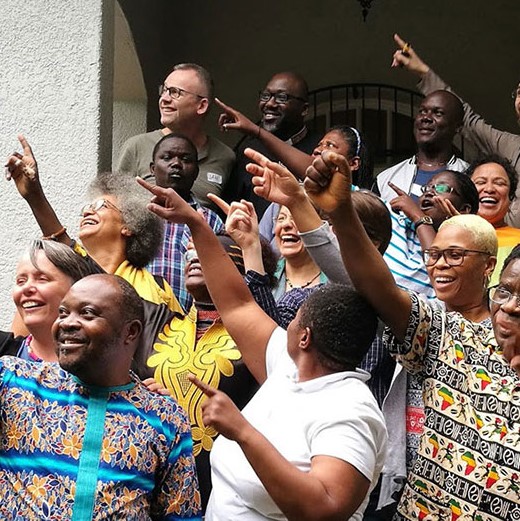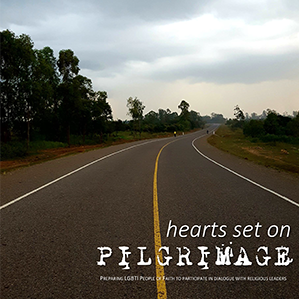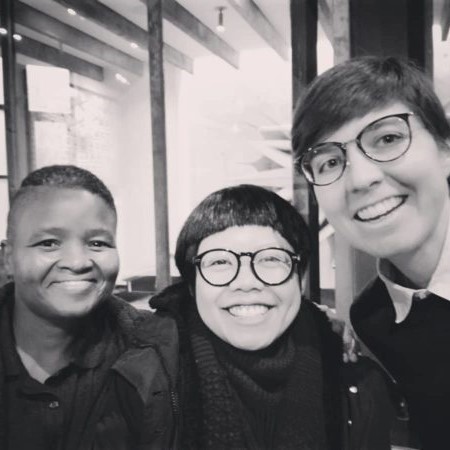During the latest 47th session of the HRC, in continuing its UN work and active engagement at the Human Rights Council, GIN was involved in 3 different side events, and intervened in 5 interactive dialogues of 5 UN Special Rapporteurs with 5 members of GIN who spoke during sessions.
Side events
Side event on Using Faith and Tradition to support an inclusive understanding of Gender and Sexuality

GIN-SSOGIE was involved in multiple side events. GIN-SSOGIE organized an online side event “Using Faith and Tradition to support an inclusive understanding of Gender and Sexuality” on the 8th July 2021. This side event was tailored to feature stories and projects from around the world celebrating diversity, love, and inclusion by centering the voices of marginalized people, predominantly from the Global South and East, who represent pre-colonial cultural and contemporary religious traditions and contexts that are inclusive and affirming of broader understandings of gender and sexuality. The event also reached the international community, including governments, UN agencies, civil society organizations, and faith leaders, with the intent to unpack the ‘anti-gender’ discourse and offer insight into the effects that this neo-colonial discourse is having on global understandings of gender and sexuality. 5 speakers were engaged as panelists from the Metropolitan Community Churches in Brazil, the Coalition of Sexual and Bodily Rights in Muslim Societies in Indonesia, the European Forum of LGBT Christian Groups in Russia, Gender Dynamix in South Africa and Rainbow Pride Foundation in Fiji. Our esteemed Co-Sponsors were the delegations of Canada and Uruguay to the UN. The event received 150+ online registrants.
The link to the Event Recording: https://youtu.be/DiJ8tanwW70
Side event on “An epidemic of violence; Defending the lives of Transgender Women”

GIN proudly took part in another side event on June 23rd. The event set out to discuss issues of transgender women given the global epidemic of violence against them. It discussed anti-transgender stigma, the fact that “denial of opportunity and intersecting vulnerabilities compound to create culture of violence targeting transgender women” and sought to “provide ways to directly make societies safer places for transgender persons”.
The event was hosted by the Permanent Missions of the United States of America, with Argentina, Australia, Austria, Belgium, Canada, Chile, Costa Rica, Denmark, European Union, Finland, Ireland, Israel, Japan, Liechtenstein, Malta, Mexico, the Netherlands, Panama, Portugal, Slovenia, the United Kingdom, and Uruguay, and the Human Rights Campaign, ILGA World, GATE – Trans, Gender Diverse and Intersex Advocacy in Action, the Global Interfaith Network for People of all Sexes, Sexual Orientations, Gender Identities, and Expressions (GIN-SSOGIE), & the Council for Global Equality.
Statements
ID on High Commissioner’s Report on State response to pandemics
“Some faith communities still exclude LGBTI+ people, including Muslim and Christian communities targeting trans people specifically. This is deeply problematic, more so during a pandemic making people even more vulnerable.”

For the opening statement, first on the HRC agenda, our Board Member, Sanjay Sharma delivered a speech in response to the report of the Office of the UN High Commissioner on the central role of the State in responding to pandemics and other health emergencies, urging for further actions for LGBTI+ people, including trans women who have faced increased discrimination and violence during the pandemic within society and religious communities. LGBTIQ+ people, including trans women, in Nepal and South East Asia, have been deeply impacted by the pandemic: unemployment is on the rise, mental health issues are another concern with increased cases of anxiety & depression. This has also been enhanced by discriminatory and violent living situations, forcing individuals to leave their homes and communities. In a call to an act of human solidarity, the statement appealed to the High Commissioner to invest in programs that are not one size fits all; and to recognize people’s specific needs.
The link to the Statement: https://www.youtube.com/watch?v=j2yNbccujwc&feature=youtu.be
ID with Independent Expert on Sexual Orientation and Gender Identity
“In my country, Pride events organized by the LGBT Christian community were attacked by far-right groups. The concept of family defined by legislators is erasing existing rainbow families, and the introduction of Article 33 ended the legal recognition of transgender people. The latest legal development is the passing of a law which bans school from talking of LGBT matters, falsely but deliberately conflating pedophilia with LGBT people. The political discourse around LGBT rights has become increasingly hostile in Hungary as well as in the Eastern-Central European region.’’

During the interactive dialogue with the Independent Expert on Sexual Orientation and Gender Identity, Judit Gyarfas, a theologian from Hungary speaking on behalf of GIN in a statement, highlighted religious fundamentalism and the tone withwhich gender ideologies are used to promote discrimination, hatred and hostility in the context of Hungary and Eastern Europe where protection rights are affected.
The link to the Statement: https://youtu.be/P7fgLrH_bdM
ID with Special Rapporteur on discrimination against Women
“The world’s awareness about the health needs and human rights of intersex women does notallow most of them to be protected from physical and sexual violence.”

For the interactive dialogue of the Special Rapporteur on discrimination against women, our GIN member Small Luk, an Intersex activist of faith from Hong Kong, discussed issues around the health rights of Intersex women, addressing violations faced in the health sector and speaking to reports of sexual harassment and violence faced by Intersex women. The statement sought to address the issue of sexual and reproductive rights specific to intersex women. She urged the council “to legally and in practice protect intersex women from rape and violence”.
The link to the Statement: https://youtu.be/lTQDg4Q3h0w
ID with Special Rapporteur on Extreme Poverty
“Human rights are indivisible and these mutually enforcing rights should not be divided based solely on the interpretation of the few. We call on the Human Rights Council to ensure social protection flows from a rights-based perspective for all citizens regardless of social class, sexual orientation, gender identity or health status. This will go a long way in strengthening social protection systems that will significantly contribute to the eradication of poverty and reducing inequalities within our societies.”

For the interactive dialogue of the Special Rapporteur on extreme poverty, GIN presented a statement delivered by Uchenna Samuel Ngene, a gay person of faith from Nigeria and member of GIN. Speakingto the Special Rapporteur’s report, he underlined the extent to which social protection measures are often temporaryl and leave out a number of minority groups, with inadequate levels of protection within fundamentalist communities; particularly in the African region. As a result, many individuals have been victims of joblessness, homelessness and discriminatory healthcare services.
The link to the Statement: https://youtu.be/kKE_BA_X9c0
ID of Special Rapporteur on Freedom of Opinion/Expression
“The recent report by the Observatory on the Universality of Rights highlights manipulation of religion, culture and tradition, and co-optation of human rights language, as key tactics used by anti-rights actors to bolster their power, control bodies and impose a social order that privileges some at the expense of others. Disinformation is used to generate moral panic and assert that certain groups of people are a threat.”

During the ID for the Special Rapporteur on Freedom of Opinion and Expression, GIN prepared a joint statement with the Association for Women’s Rights in Development (AWID) and delivered it on behalf of 3 other organizations including COC Nederlands, Akahata and SRI. The joint statement spoke to the exploitation of the pandemic by some state actors leading to ill treatment that discredits women and LGBTIQ activists. The statement was delivered by Toni Kruger-Ayebazibwe, Executive Director of GIN, who urged the United Nations to protect, respect and fulfill the right to freedom of expression and opinion.
The link to the Statement: https://youtu.be/Ppk7MbP6r9A
General discussion on the rights of indigenous women and girls
During the HRC 47, GIN also had the opportunity to follow the virtual day of general discussion on the rights of indigenous women and girls, organized by the Committee on the Elimination of Discrimination against Women. Relying on its expertise, GIN provided a written submission to the Committee. The submission is guided by an intersectional approach that incorporates the multiple sources of discrimination that create the substantively distinct life experiences of LBTI indigenous women and girls.
The submission supported the idea that any discussion around both “Equality and non-discrimination with a focus on indigenous women and girls and intersecting forms of discrimination” and “Effective participation, consultation and consent of indigenous women and girls in political and public life” must also take into account a religious dimension. Moreover, it emphasized the importance of understanding converging colonial influences and religion that impact the lives of LBT women and girls coming from indigenous communities across the globe. In other words, the submission pointed out to the importance of bearing in mind the structural discrimination deeply embedded in histories of patriarchy, colonization, conquest and marginalization, and invited the Committee to take into account the distinct life experiences of LBT indigenous women and girls across the globe when designing a General Recommendation that aims to provide States parties to the Convention with guidance on the measures they should adopt to ensure full compliance with their obligations under the Convention to respect and protect the rights of indigenous women and girls in general. To make sure that the draft general recommendation on the rights of indigenous women and girls takes those perspectives into account, the submission included recommendations to the Committee.
Furthermore, the submission also supportedILGA World’s contribution to the Committee and was used to create the joint statement which was delivered on behalf of GIN and ILGA world during the general discussion.
The link to the video Statement: https://www.youtube.com/watch?v=pPNyUqvTqi4
The link to the written statement: https://www.ohchr.org/Documents/HRBodies/CEDAW/DGD24June2021/Oral_statements/Part1/28.DOCX
Other activities
GIN also supported the event led by our partners, the Association for Women’s Rights in Development (AWID). “Rights at Risk: Time for Action”; a dialogue on rights related to gender and sexuality in human rights systems. The event explored strategies helping to strengthen a resilient collective resistance and provided a guide to actions to help to overturn anti-right actors’ persistent co-optation of faith and tradition.
The GIN team followed a number of sessions held during the course of HRC47 including the Interactive Dialogue on Systemic Racism, the Interactive Dialogue on International Solidarity, the Interactive Dialogue with Working Group on Discrimination Against Women as well as the statement on Protection of the Family.
GIN will be organising further activities during the next Human Rights Council session in September, including an event on “Reclaiming Families and Traditional Values around the world”. More updates coming soon on our social media and website!





